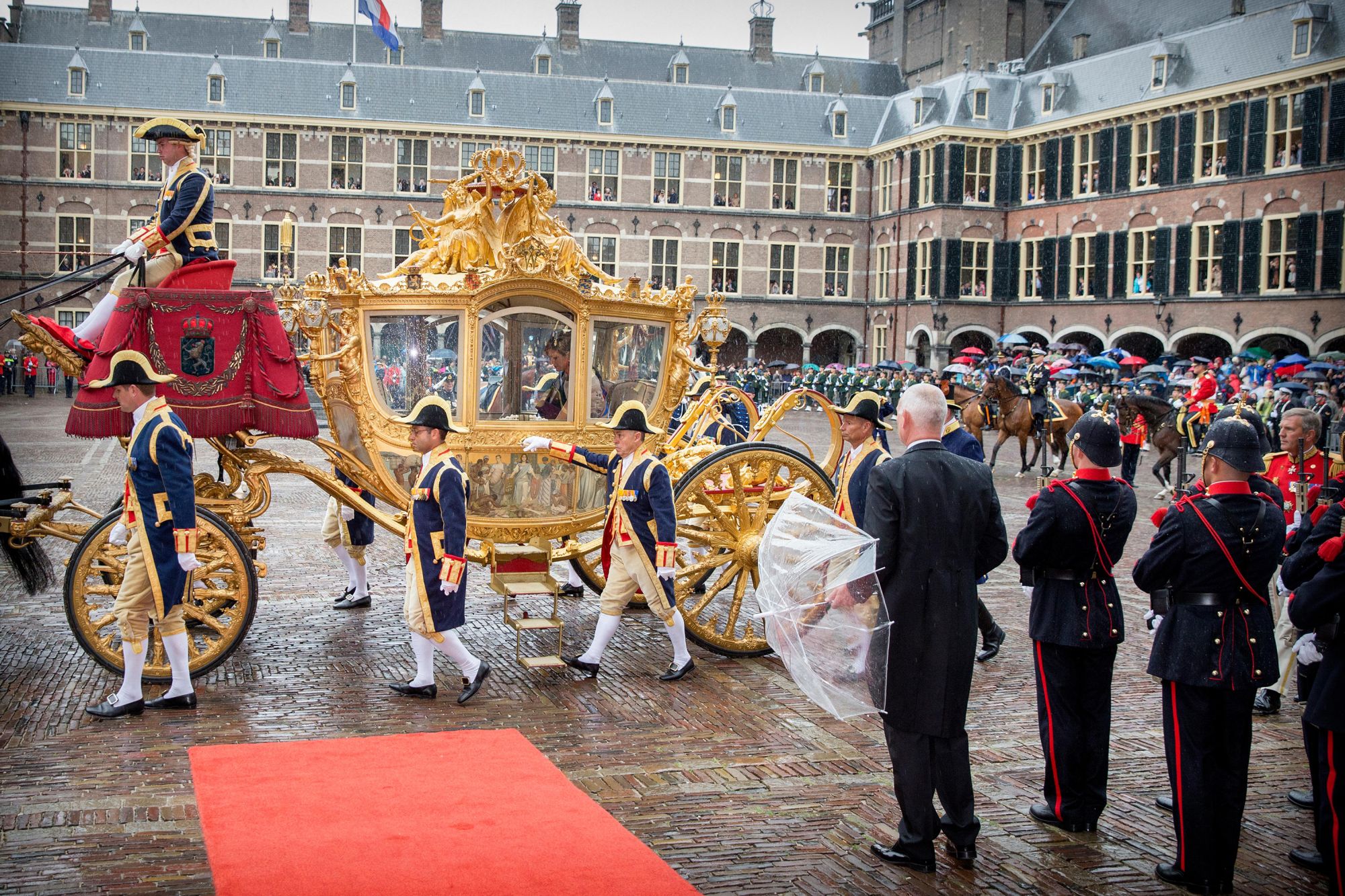King Willem-Alexander has said the Dutch royal family will temporarily stop using the Golden Coach until “the Netherlands is ready,” following criticism of colonial ties to the horse-drawn carriage.
“Our history contains much to be proud of. At the same time, it also offers learning material for faults to recognize and to avoid in the future,” King Willem-Alexander, the ruling monarch in the Netherlands, said in a video message published on the royal family’s verified YouTube account on Thursday.
“We cannot rewrite the past. We can try to come to terms with it together. That also applies to the colonial past. Instead, a collective effort is needed that goes deeper and lasts longer. An effort that unites us rather than divides us.”
The carriage – known colloquially as “De Gouden Koets” – has been at the center of fierce debate in recent years.
One of the panels on the Golden Coach, named “Tribute from the Colonies,” depicts people of color from the colonies kneeling in subordination to a young white woman who represents the Netherlands, while presenting her with gifts, according to the Amsterdam Museum, where the coach is housed.
The Dutch Empire spanned 250 years from the 17th century to the 19th century, according to the Rijksmuseum in Amsterdam. The empire operated in regions including the Caribbean, Brazil, Suriname, southern Africa and Asia, where people were also enslaved and exploited by imperialists.
In 1990, the Cura?aoan artist Ruben La Cruz demonstrated against the colonial vignette at a festival in Rotterdam. Since then multiple public figures, including an activist and two members of the Dutch parliament, have called for the carriage to no longer be used.
However, these demands grew louder after the global Black Lives Matter protests in 2020, when many countries were confronted with their racial and colonial histories.
The Golden Coach was given to Queen Wilhelmina, the first female monarch of the Netherlands, in 1898. She celebrated her 18th birthday that year, and had her coronation soon after.

Now it is mainly used on Prince’s Day, which is when King Willem-Alexander opens the Dutch parliament on the third Tuesday in September, and makes a speech outlining the government’s agenda for the coming year, according to the Dutch government website.
The carriage is also linked to other prestigious events including royal weddings and inaugurations.
King Willem-Alexander added, “The Golden Coach will be able to be driven again when the Netherlands is ready. And that is now not the case.
“All citizens of this country should be able to feel that they are equal and get the same opportunities. Everyone should be able to feel part of what has been built in our country, and to the proud of that. Also those Dutch citizens with ancestors who were not free in the East or the West.”
“As long as there are people who live in the Netherlands who feel the pain of discrimination on a daily basis, the pain of the past will cast its shadow on our time and it is not yet over.
“Listening to and understanding each other are essential conditions for getting to reconciliation and taking away the pain in people’s souls.”
Addressing the Dutch public, he said the Golden Coach could be driven again on Prince’s Day “only if we take this road to reconciliation together,” describing it as a day when “we celebrate our democracy and our solidarity as Dutch people.”
He did not specify a date when the carriage could be used again.
